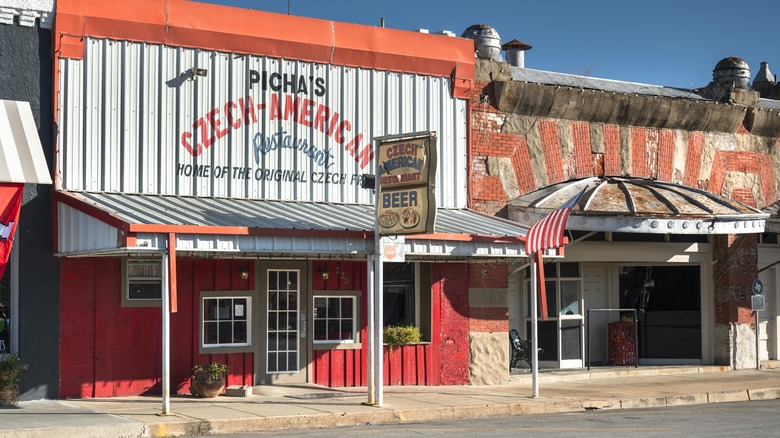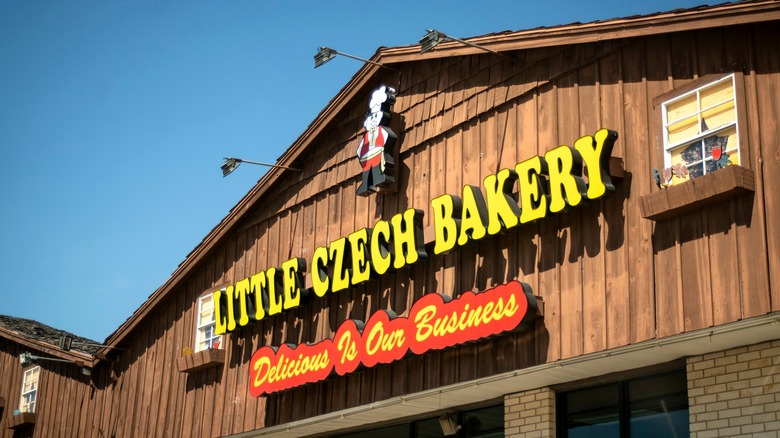The Underrated And Scenic Texas Town Full Of Czechia Vibes But Without The Crowds
German culture in Texas cities such as New Braunfels and Fredericksburg is fairly common, as evidenced not just in the Germanic place names but also the distinctive Texas German dialect and culture that lives on in these areas. What is not so well known is the Czech element in the Lone Star state. The customs and cuisine of Czechia — formerly the Czech Republic — are most obvious in the small city of West, Texas, which, despite its name, is located not in the west but in Texas' northern central region.
Around 2,500 people live in West, a town that the locals have dubbed the "Czech Heritage Capital of Texas." This very much has the blessing of Czechia, whose ambassador Petr Gandalovic said, "This is basically a Czech city. The families have over 70 percent, many have some Czech origin. they have Czech names and they maintain Czech festivities." With its language, restaurants, festivals, and pastimes, West, Texas is one of those American cities that will make you feel like you're in Europe.
Pride and kolache in West, Texas
West, Texas was established in 1882 as a railroad town, and it attracted Czech immigrants fleeing oppression in Austria-Hungary. Their' search for liberty caused them to be proud of their roots, and this pride persists to this day. Since 1976, the annual West Fest has celebrated all things Czech, including beer halls, roast pork, and the legendary kolache, which is a thick, doughy pastry filled with either sweet or savory ingredients, including apricot, prune, sweet cheese, sausage, and jalapenos.
These delicacies are all served at the popular Czech Stop bakery, a venerable institution also known as Little Czech Bakery that was open 24/7 until the pandemic, when the owners reduced its hours to 5 a.m. – 11 p.m. Despite this, Czech Stop remains a beloved favorite of locals and visitors who come for miles to enjoy both sweet and savory kolaches.
Over the decades, some Czech culture has faded in the town, most notably the Czech language weekly newspaper that ceased publication in 2012. But locals still teach the Czech language, and worship continues at the Czech Protestant West Brethern Church. Business is thriving at the Czech-American Restaurant, too, over a century after it first opened its doors in 1916. If a visit to West whets your appetite for the old country, perhaps your next trip could take you all the way to Prague — one of Rick Steves' favorite places in Europe — where you can discover the five most "real" neighborhoods of that beautiful, historic Czech city.

